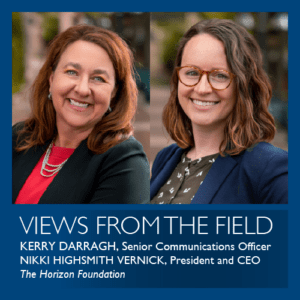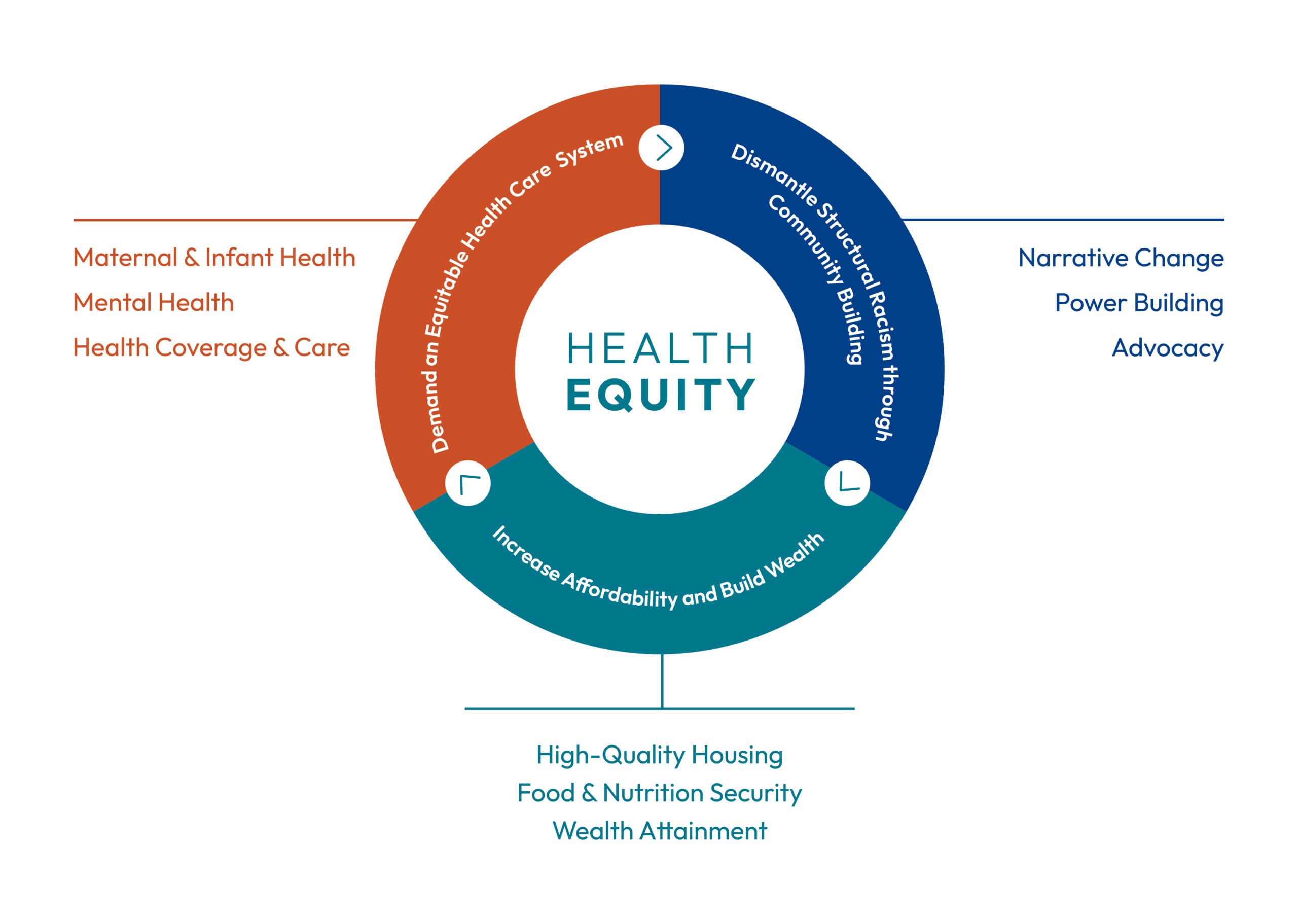Kerry Darragh, Senior Communications Officer, The Horizon Foundation
Nikki Highsmith Vernick, President & CEO, The Horizon Foundation
The Horizon Foundation of Howard County, Maryland believes that everyone in our community deserves to live abundant and healthy lives. But there are barriers standing in the way of some of our residents—particularly people of color—from achieving that vision. We know that for too long, inequitable laws, policies, and practices have held back many of our neighbors. The foundation recently completed a 14-month-long strategic planning process to figure out how to address these systemic barriers in a way that centers the voices of our community members who are most impacted. We realized that our work—what we focus on, who we engage with, and how we make decisions—needed to fundamentally change.
Below are our key takeaways on centering community voice while leading with trust and anti-racism as our core guiding principles.
Share power with the community in an intentional and authentic way.
Setting out, we sought to gather input from our community and share decisionmaking power. We knew we wanted to center the lived experiences of people of color and give them a stronger voice in our work. To do this, we expanded the ways we went to community to hear about challenges that people of color and people with low incomes face in living a healthy life—from conducting one-on-one interviews with partners and grantees, hosting a community summit, door-knocking and canvassing, polling, focus groups with non-English-speaking residents, and more. We sought out new vendors, led by people of color, to help us gather this input from thousands of residents who have been most marginalized.
When it came to sharing power, we expanded the Planning and Evaluation Committee of our Board of Trustees (who make decisions about our work) to include half current board members and half community members with lived experience—whom we compensated for their time and expertise. We took the time for everyone to get to know each other, build relationships, and set new norms. They learned about each other as people before diving into research or data. This was critical for community members to feel comfortable in using their voice and feel recognized as an equal partner so real power-sharing could occur. It helped us build genuine, authentic relationships with community members who will be integral to our strategy moving forward.
Don’t just pay lip service to anti-racism – walk the walk.
Racial equity has been a priority for the foundation in recent years. To take the next step in our journey, we wanted to truly embrace principles of anti-racism in our organization. What we discovered is that if you say you want to center anti-racism, you must honor that in everything you do. Here are some ways we are working to cultivate an anti-racist culture:
- We realized that to end health inequities, we must speak boldly about centering the experiences of people of color, even if it leads to uncomfortable conversations.
- For the first time in our 26-year history, we changed the foundation’s vision, mission, and values to be explicit about fighting structural racism and systemic inequities.
- We are changing our grantmaking approach to be more inclusive, accessible, and trust-centered by spending more time in relationship building with grantees and nurturing communities of practice so they can build power together, streamlining our application and reporting process, and providing longer-term operating grants.
- We are embedding our values into our endowment management.
- We even updated our colors and branding to reflect a bolder, deeper direction.
We know the foundation and our staff and board members are all on their own journeys and we will not always get everything right. But to be an anti-racist organization, we all must truly commit to that journey.
Working upstream on systems change vs. meeting immediate needs.
The Horizon Foundation believes strongly that working at the policy and systems level is the best way to create long-lasting change. We’ve seen great success over the years in doing so. However, this work takes time, and results may take years to trickle down into residents’ daily lives. When deciding our new areas of focus, we often faced the tension of balancing the very real struggles members of our community are facing today—people who can’t wait for decades for issues to be fixed—with working towards bigger solutions that will hopefully eliminate those struggles to begin with but will take longer to implement. It’s a challenge we continue to face, but we must remain committed to working with new grantees and partners to build power and co-create lasting solutions by working on root causes.
“You can’t separate me.”
Like many organizations, the foundation had always organized our work into separate “buckets,” or issue areas. Separating issues can make it easier to develop our budget and organize our staff. However, we heard loud and clear from our community that many of the challenges people face in their daily lives are interrelated and intersectional. People (and our grantees) don’t just care about one specific issue. They can’t separate their lived experiences with racism from their housing situation or their ability to afford healthy food or their ability to access a respectful, compassionate health care provider because it is all connected. We are now approaching our work with a more intersectional lens—knowing that we can’t work on everything but recognizing that our work in one focus area will invariably touch another. Internally, we must reimagine ways to develop our budget, organize our staff, and structure our grantmaking. Externally, we can tell the story of our work in a more holistic way, with health equity at the center of it all.
Ultimately, this process yielded a bold and ambitious plan that will guide our work for years to come. This is a continuation of our journey to build trusting relationships and co-create solutions with our community to achieve our shared vision: a Howard County free from systemic inequities, where all people can live abundant and healthy lives.


